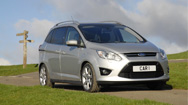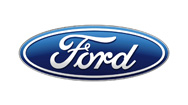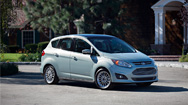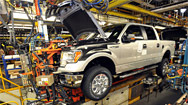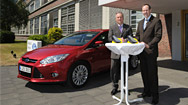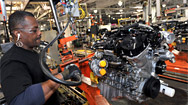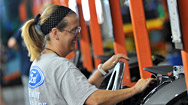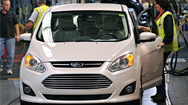New Models of Mobility
We are investing significant research and development dollars in new models of transportation, and helping to advance thinking about it. We are doing this through partnerships and pilot projects at several global locations. Some of these projects have focused on exploring how to deploy electric vehicles as part of integrated mobility solutions aimed at creating “clean, green, smart and safe” cities (see figure below). We believe that creative collaboration and innovative technologies and services can yield new solutions, and that these solutions can harness the benefits of mobility while reducing its environmental and social impacts.
In 2012, for example, we opened a dedicated research lab in California’s Silicon Valley as part of our commitment to make technology affordable for millions. The new Ford lab serves as a hub for independent technology projects and the identification of new research investments with partners located along the U.S. West Coast. The lab helps to ensure that Ford keeps pace with consumer trends and aggressively prepares for the future by developing mobility solutions to harness technology.

An Innovative Approach to Car Sharing in Germany
Many people around the world want the benefits of personal mobility but don’t necessarily want to own a car. Car sharing offers an approach that can provide those benefits while reducing congestion and the environmental impacts of the private automobile.
According to a recent Ford Motor Company-sponsored poll,1 more than half of Europeans – 56 percent – would consider car sharing, either through a formal program or through private arrangements. Drivers increasingly see car-sharing programs as viable options, especially in dense urban areas where parking can be problematic and where public transportation fails to meet all mobility needs. Ready and affordable access to a pool of available vehicles can provide on-demand transportation flexibility.
A widely cited 2010 study from the University of California-Berkeley2 estimated that one car-share vehicle replaces anywhere from nine to 13 vehicles on the road. That includes four to six direct replacements; the rest are avoided purchases.3
In early 2013, we announced the launch of FORD2GO, a collaboration between Ford of Germany and our network of 527 Ford dealers, 257 affiliated branches and 1,083 Ford-authorized repair shops, all of which are eligible to take part in the program. The program, to be rolled out during 2013 across Germany, calls for participating Ford dealers around the country to offer car sharing to their customers.
Dealers will purchase one or two Ford vehicles for the program and will be responsible for installing keyless entry systems that will allow users to access the vehicles for rental use. Under the program, the dealer will receive 80 percent of the usage fee. A portion will also go to Ford Motor Company and to the technology company, DB Rent, which developed the Web- and smartphone-based booking system for car-share participants.
For Ford, the program also offers the chance for potential customers to experience Ford vehicles.
As a company, we are committed to a collaborative and integrated approach to future mobility. FORD2GO is one step in exploring what that future might look like.
- Survey carried out by The Futures Company between July and August 2012; 6,028 people were questioned across six European countries – Denmark, France, Germany, Italy, Spain and the U.K.
- E. Martin, S. Shaheen, J. Lidicker, “The Impact of Carsharing on Household Vehicle Holdings: Results from a North American Shared-Use Vehicle Survey.” Transportation Research Record, 2010.
- The range of estimates on car sharing varies widely, and experience to date may not scale up proportionally if car sharing becomes more widespread.

